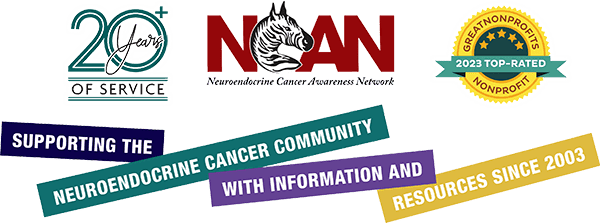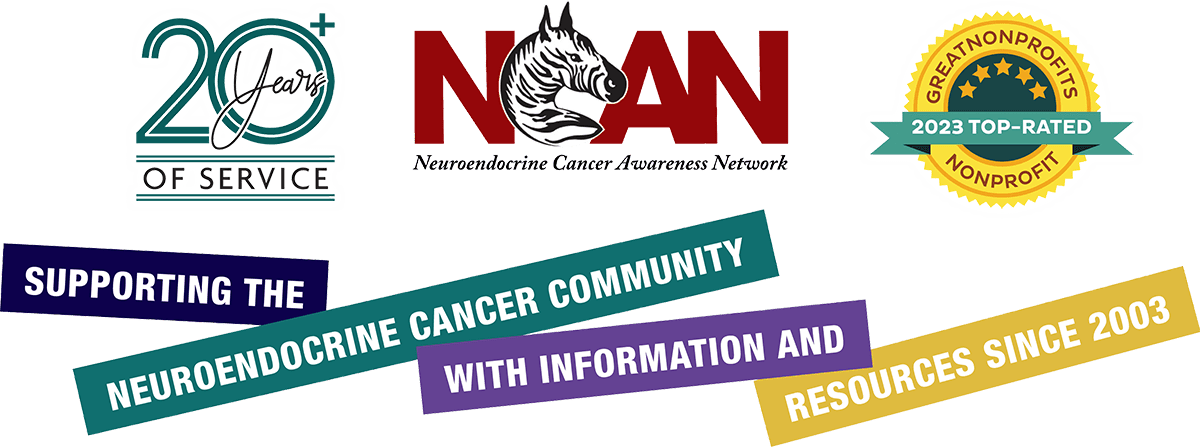September 1, 2022
By Anne Dabbs,
NCAN TN Chapter Leader, NET Patient

PREVENTING PATIENT PORTAL PANIC.
Are patient portals a friend or a foe for you?
Originally met with some uncertainty by many physicians, the patient portal experience is becoming an efficient means of communication about your health.
The 2020 mandate to the 21st Century Cures Act is the blueprint of the patient portal access as we currently know in the US. This mandate was designed to ensure every patient in the US has prompt access to their clinical notes from their physicians. The earlier and larger legislation which started this process grew out of an “open notes philosophy “. These US Government laws were put into place to provide improvement in patient engagement and care quality.
There are numerous rules and exceptions which govern the use of our Electronic Health Records (EHRs). Some medical specialties have standing exemptions; others may exclude information on a case-by-case basis. Under the HIPPA Security Rule, we are assured reasonable and appropriate cybersecurity measures of our personal medical history. Medical facilities and individual medical offices may differ in their emphasis of using our patient portals.

TO MAXIMIZE THE POTENTIAL FROM A PATIENT PORTAL EXPERIENCE, WE MUST PRACTICE THE 5 P’s OF PREVENTING POTENTIAL PATIENT PORTAL PANIC:
1) Previous scans and labs can provide context for what you are getting ready to read in your newest entry. Before checking online, refresh your memory about what is the reason for your most recent activity. By doing so you will hopefully not be distracted by the sheer volume of information available and can focus on the important matters at hand.
2) Prepare a review sheet or a chart from previous labs and scans to highlight what is likely to have the most detailed descriptions. Have a quick and easy reference for values or images that might need evaluating.
3) Proper terminology familiarity is critical to understanding your reports. If you are still learning the basic language of a cancer diagnosis, make a cheat sheet of definitions. Make a point to become familiar with the stock phrases that are used such as in pathology reports. Learn which words prompt your anxiety, fear or misunderstanding, but are actually just medical jargon. Learn how to look up common medical abbreviations. Our NCAN website has an ever-evolving glossary of medical terms and abbreviations unique to our Neuroendocrine Cancer. It’s important to know that some medical phrases have a different definition when referring to Neuroendocrine Cancer. You can Google your lab work’s website to determine normal ranges for your lab work. WebMD, the NIH website, and the NCCN website are also good resources for proper terminology.
4) Practice the pause. When your patient portal entry has a finding in your report that is counter intuitive to everything you know about your case, take a deep breath, and remember that several people have contributed to this report and human error is a real possibility. Do not immediately jump to the conclusion that you have been lied to, etc. Fear and uncertainty are natural emotions for a cancer patient, but their intensity must be tampered down when reading results online. As patients of a rare disease, we must accept the reality that a large majority of the medical community is not overly familiar or current in their knowledge of Neuroendocrine Cancer and it’s rapidly increasing developments. Your local physicians and their clinical staff may not yet be current in your updated entries. Always ask for clarification first instead of accusing individuals of incompetence or negligence.
5) Proper Planning Prevents Poor Performance. Ask your physician how best to utilize your patient portal in communication with him and his office. Viewing and storage of your medical records is but one benefit. Many offices allow you to schedule appointments and request prescription refills via the patient portal. Some physicians prefer that you use your patient portal account as a quick question feature of communication rather than email or phone messages. Assess your personality and your comfort level with your disease. Medical terminology is hard to decipher until you are disciplined enough to educate yourself about your disease and it’s unique language. You owe it to yourself first, and to your physicians, to have the correct temperament to read your charts prior to having the results explained to you by a medical professional. Don’t create more stress by reading reports that might only alarm or frighten you. Wait for your physician’s explanations.
Used correctly, patient access to clinician notes through Patient Portals can improve patient safety and boost patient activism. It’s a wonderful tool to help us each become our own best advocate.
If you are looking to expand your self-advocacy toolbox, remember that NCAN is always HERE for you. Join us at our next EVENT. Check out the RESOURCE ROOM and let us help you on your NET journey.
Find out more about how YOU can help the NET Community.
Disclaimer: NCAN blog posts are the opinions of its writers and are not intended as a replacement for medical advice. Please consult your Health Care Providers for individual concerns.








Recent Comments